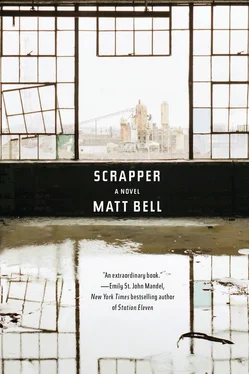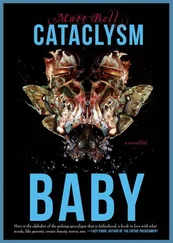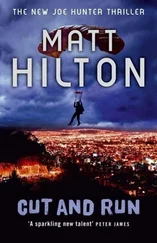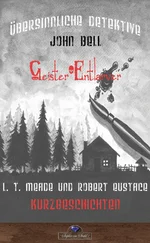Kelly lay quietly on the floor, breathed the disturbed dust of the century. Somehow all the rage had gone out of him even though the task wasn’t finished. What was left? Only an anxious regret. When he stood with the sledge in his hands he felt tricked. The arrival of grossest inevitability. The limit between one life and the next. The way the blow you never saw coming pushed you over. The land of the living, the land of the dead. Not one and then the other, but one nested within the next. When had it even happened.
The building would stand until one day someone claimed all that yet endured: they would tear it down with machines, they would break the bones of the buildings and rip the last of their guts from the ground. A mechanical reckoning, a recycling of the late greatness. A city collapsed, its citizens driven out, its halted factories left to linger. Thieves in the ruins, murder below the earth.
All the metal in the zone would one day be removed, forgotten, reset. Dental records could identify the body, forensic evidence might find Kelly, but metal had no memory. He’d left the red robe behind. Surely other stains would last. In the grayer light of the hallway he took off his gloves, ran his hands over the door, the doorframe, every surface impossibly cool beneath the earth. He would take his chances with the fingerprints he wasn’t supposed to have. Either a detective would catch him or else a detective would not and he would let his worn hands decide. He trudged up the stairs, toward the surface of the world. Already the event began diverging and he recognized this quality of his thought for what it was, not a flaw of memory but an enhancement, a way to believe in a better life than the one he had lived, some good world without a past. What was wrong with him included a way to prepare for an aftermath. How aftermath wasn’t necessarily a pejorative. How he had lived with the version of himself that had made possible every bad thing he could remember doing, by damage, by weakness, by choice. But surely somewhere within there must still be another man, one who had never done anything wrong, had never hurt anyone, who had been loved back by everyone he had ever loved. But what was this man’s name, by what title could he be called to appear.
Back out in the blue air of the zone, Kelly put his mouth to the cuff of his coat, sucked hard, tasted the crackle of sweat and grit. The visible world shuddered and the shuddering came in waves. He wanted to vomit again but the vomit was not coming out. He pressed his hands against his stomach, pushed his fingers and thumbs into the bruises he found. He gagged against the pain but nothing else came, only the familiar throb of overexertion. He sank down to his knees, rocked back on his heels, placed his hands on his thighs. He kept waiting to catch his breath and it kept not coming. Something had broken. His fingers were numb and if there had been anyone to call for help he knew he wouldn’t be able to work his mouth, wouldn’t be able to hear his own voice over the awful increase of the ringing in his ears.
The car had been parked close but not close enough. He tried to walk, brought himself to life by the effort. Every ache and strain shouted its blame. He heard a sound like a blur, watched a throbbing cross his vision as he tried again to stand. The alley where he’d parked the car loomed emptier than he expected. Paper trash caught against the bricks, lay buried in the snow. The flotsam of a city. He put his hand along one wall, moved forward through a weariness so encompassing he hoped it couldn’t have originated within him. Air as exhaustion. One eye was bruised closed and the other so badly diminished his eyesight refocused uselessly as he sorted the blearing scene: something was gone that was supposed to be present and for a moment he couldn’t place it.
He began to laugh when he understood the car was missing. A horrible, humorless sound, a high-pitched alien laugh that did not, at first listen, seem to belong to him. A loon, he thought, a bird of his childhood, a spirit bird announcing its flight. It was hard to know exactly how he was harmed, even when he had done the harm himself. Somewhere in the distance a horn honked, a warning or an exclamation, a horn honking and honking, panic and alarm but not from him.
EVERY YEAR HE THOUGHT HE was as thin as a man could get but the next year he woke up thinner. Now he knew the name of every rib. His eyes jutted far enough from his skull he thought he could see one orb with the other. The endless dryness of his tongue, how for decades it had been a fat animal and now it was small and black and useless, a worm inside a toothless cavern. When his last loneliness began he’d stopped speaking in sentences and now as he moved mutely through the forest it was only external sounds that broke the silence: the sound of last dogs and last birds, the sound of wind, the sound of creaking wood and straining metal and flapping fabric. The whispered threat of more snow falling, of winter forever.
Now he was awake again. Grief never ended but it faded, went ambient. He took what he wanted wherever he went. It wasn’t much. None of it was his but who was he stealing from. No we , no us , but still him and them . Same as it had ever been. The other people left lived in the day while he lived in the night. Or else he lived in the distance.
He didn’t covet what others had, where they were. He stayed where he was and everything he saw was his or close enough.
Chain-link and razor-wire fences ran around the perimeter of the exclusion zone, contained Chernobyl and Pripyat and the forest and all this was for the best. Those who wanted to be part of Ukraine could live outside the fence. Those who wanted to be part of Pripyat could live within. He had been a soldier once: that was how he had come to Pripyat the first time, to the plant. Years later he returned, arrived at the gate, subjected himself to questioning. He was done with Ukraine, he said. Ready to be apart, within. The first time they had given him a white robe and a white cap, a shovel to clean the dirt down below the melting reactor. The great heat everywhere, the awful unknown of the danger. The feeling in the darkness that anything might happen next, that this was the beginning of something new, a lasting unknown. When he came out from beneath the earth he had watched the others climb the building, cleaning the roof of the reactor. They had called these soldiers the storks but now all the storks were dead, the real and the named. Surely the earth and the dirt ate the birds too, when at last they grew tired of flying.
In Pripyat there waited ten thousand rooms he could sleep in but none of them were his. Not anymore. He walked the city streets on moonless nights but he did not have a home or else the forest was his home, the small caves in the forest where he might build a fire, fight for warmth in the endless winter. He would not kill for food but did not need much, could live off whatever he could gather.
It had been seven years since he’d moved to the forest, since he’d last spoken to another person. Seven years since he’d spoken to a man or a woman. Longer since he’d seen a child. Everyone he’d ever known was either dead or gone and the ones who were gone were likely dead too. Seven years or close enough. Much of his life had been ruled by such numbers. Seven years in the army. Seven years between leaving the home of his parents and finding his wife. Seven years before their first child, then seven more before the child died, before they came back to Pripyat. Then seven years living here, in the house his wife had been born in. The garden, the stucco walls, the eventually shining everything. Now seven years lived in the forest, where there was no wife, no house or neighbors. Where there was no church, where there was no priest.
Читать дальше












